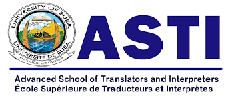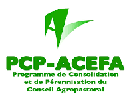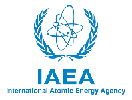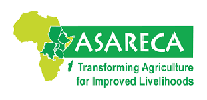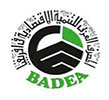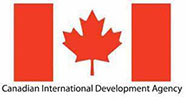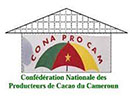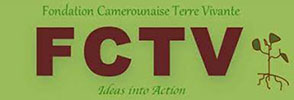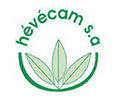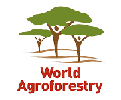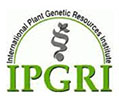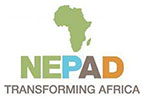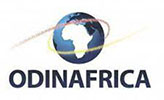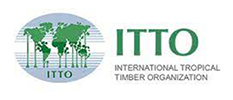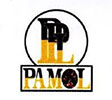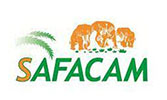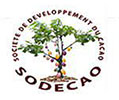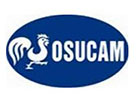Phone: (+237) 222 23 26 44 E-mail: info@irad.cm IRAD CAMEROON P.o 2123, Nkolbisson, Yaoundé
The Institute of Agricultural Research for Development (IRAD), governed by Decree No. 2019/075 of 18 February 2019 on the reorganisation of IRAD, is a public establishment of a scientific and technical nature with a legal personality and financial autonomy. It is placed under the technical supervision of the Ministry of Scientific Research and Innovation and the financial supervision of the Ministry of Finance.
IRAD is administered by two bodies: a Board of Directors and a General Management.
The Board of Directors
The Board of Directors is the body that defines and directs the general policy of the Institute and evaluates its management within the limits set by its missions in accordance with the regulations in force.
It comprises twelve (12) members and is headed by a President.
For the execution of its missions, the Chairman of the Board of Directors has at his disposal an Executive and an Assistant Director.
The General Management
The General Management of IRAD is placed under the authority of a Director General, assisted by a Deputy Director General, both appointed by decree of the President of the Republic.
For the execution of his missions, the Director General of IRAD has :
- a Cabinet ;
- Services attached to the General Management;
- a Central Administration;
- Operational Structures.
I. The Cabinet of the Director General
It comprises; the Secretariat of the Director General; the Secretariat of the Deputy Director General; the Guidance Office and the Visas and Missions Office.
II. Services attached to the Directorate General
They are made up of :
- the Internal Audit, Quality and Management Control Division
- the Genetic Resources Conservation Unit
- the Legal Affairs and Litigation Unit
- the Communication, Documentation and Archives Unit
- the Transit and Marketing Agency
- the Accounting Department
- the Mail Service
III. The Central Administration
It comprises three (03) departments, namely:
A. The Directorate of Scientific Research
Placed under the authority of a Director, the Directorate of Scientific Research is responsible for
- coordinating the development of research activities, projects and programmes
- coordinating activities related to the evaluation of research activities and the performance of researchers
- monitoring all research activities, projects and programmes
- coordinating the development of activities in workshops, laboratories, production units and the valorisation of research results
- promoting the production and dissemination of research results and products
- accompanying and supporting projects for the creation of innovative and viable companies through an incubation process.
It comprises :
- the Policy and Programming Division (DPP)
- the Plant Production Division (DPV)
- the Animal and Fisheries Production Division (DPAH)
- Biodiversity, Forestry and Environment Division (DBEF)
- Laboratories, Accreditation and Certification Unit (CLAC)
- Cooperation Unit (CC)
B. The Directorate of Administrative and Financial Affairs
The Directorate of Administrative and Financial Affairs is responsible for the preparation, execution, monitoring and control of the execution of the budget; the preparation of summary financial statements; the preparation of tender documents and the monitoring of the execution of public contracts in accordance with the procedures in force; the keeping of files, statistics and the conservation of documents relating to public contracts; the monitoring of the process of maturing projects; the monitoring of the execution of works and services; the management and maintenance of the Institute's movable and immovable property.
C. Human Resources Department
Human Resources Department is responsible for the implementation of human resources management policies, pay management and staff training. Its mission is to implement tools, systems and methods for recruiting, retaining, developing, strengthening and promoting skills, as well as processing pay.
III. Operational Structures
They are made up of :
- Five (05) Agricultural Research Centres (ARC) representing the five agro-ecological zones of Cameroon. These are: Maroua Agricultural Research Centre (Zone 1), Wakwa Agricultural Research Centre (Zone 2), Bambui Agricultural Research Centre (Zone 3), Ekona Agricultural Research Centre (Zone 4) and Mbalmayo Agricultural Research Centre (Zone 5);
- Six (06) Multipurpose Agricultural Research Stations (SPRA): Garoua, Bangangté, Dschang, Njombé, Bertoua and Minko (Dja Reserve).
- Two (02) Specialised Research Stations: Garoua, Bangangté, Dschang, Njombé, Bertoua and Minko.
Utque aegrum corpus quassari etiam levibus solet offensis, ita animus eius angustus et tener, quicquid increpuisset, ad salutis suae dispendium existimans factum aut cogitatum, insontium caedibus fecit victoriam luctuosam.
Adolescebat autem obstinatum propositum erga haec et similia multa scrutanda, stimulos admovente regina, quae abrupte mariti fortunas trudebat in exitium praeceps, cum eum potius lenitate feminea ad veritatis humanitatisque viam reducere utilia suadendo deberet, ut in Gordianorum actibus factitasse Maximini truculenti illius imperatoris rettulimus coniugem.
Saepissime igitur mihi de amicitia cogitanti maxime illud considerandum videri solet, utrum propter imbecillitatem atque inopiam desiderata sit amicitia, ut dandis recipiendisque meritis quod quisque minus per se ipse posset, id acciperet ab alio vicissimque redderet, an esset hoc quidem proprium amicitiae, sed antiquior et pulchrior et magis a natura ipsa profecta alia causa. Amor enim, ex quo amicitia nominata est, princeps est ad benevolentiam coniungendam. Nam utilitates quidem etiam ab iis percipiuntur saepe qui simulatione amicitiae coluntur et observantur temporis causa, in amicitia autem nihil fictum est, nihil simulatum et, quidquid est, id est verum et voluntarium.
According to the Presidential Decree No. 2019/075 of 18 February 2019 reorganizing IRAD, the Institute is a reference center for agricultural research. It promotes agricultural development, particularly in the fields of plant, animal, forestry, fishery and environmental production, as well as food and agro-industrial technologies. As such, these activities cover two (02) components, including agricultural research and the promotion of agricultural development..
- Ensuring research, collection, processing, preservation and dissemination of scientific, technological and innovative knowledge, with an impact on the development of sectors in its areas of competence;
- Ensuring the valorization of research results at the level of development actors, in liaison with the ministries in charge of the rural sector (agriculture, animal industries, breeding, forest, fauna, environment and sustainable development);
- Developing national research strategies, and contributing to the development of sub-regional, regional and international research strategies, as well as to the dialogue between science, research and society in its fields of competence;
- Participating on initiative or on order, in the carrying out of studies or services in accordance with its purpose;
- Assisting the State Authorities in the design, implementation and monitoring and evaluation of activities related to its purpose;
- Assisting the State authorities on issues relating to intellectual property, standards and quality of agricultural products, in conjunction with the organization in charge of Standards and Quality;
Promoting Agricultural Development
- Development of agri-food and agro-industrial technologies as well as scientific models for environmental conservation, economic and sustainable management of agricultural resources;
- Development of scientific and technical cooperation with specialized national, sub-regional, regional and international institutions in its fields of competence;
- Implementation of a scientific program around the priority axes for the development of the country, based on the real needs of the users;
- Valorizing and making available to users the results of research and reliable data to meet their needs;
- Ensuring the capacity building of researchers, technicians and staff of the sectoral administrations necessary for the accomplishment of its missions;
- Contributing to the development and updating of Cameroon’s agricultural map;
- Build collections for agricultural, plant, animal, forestry, environmental and fisheries research.


